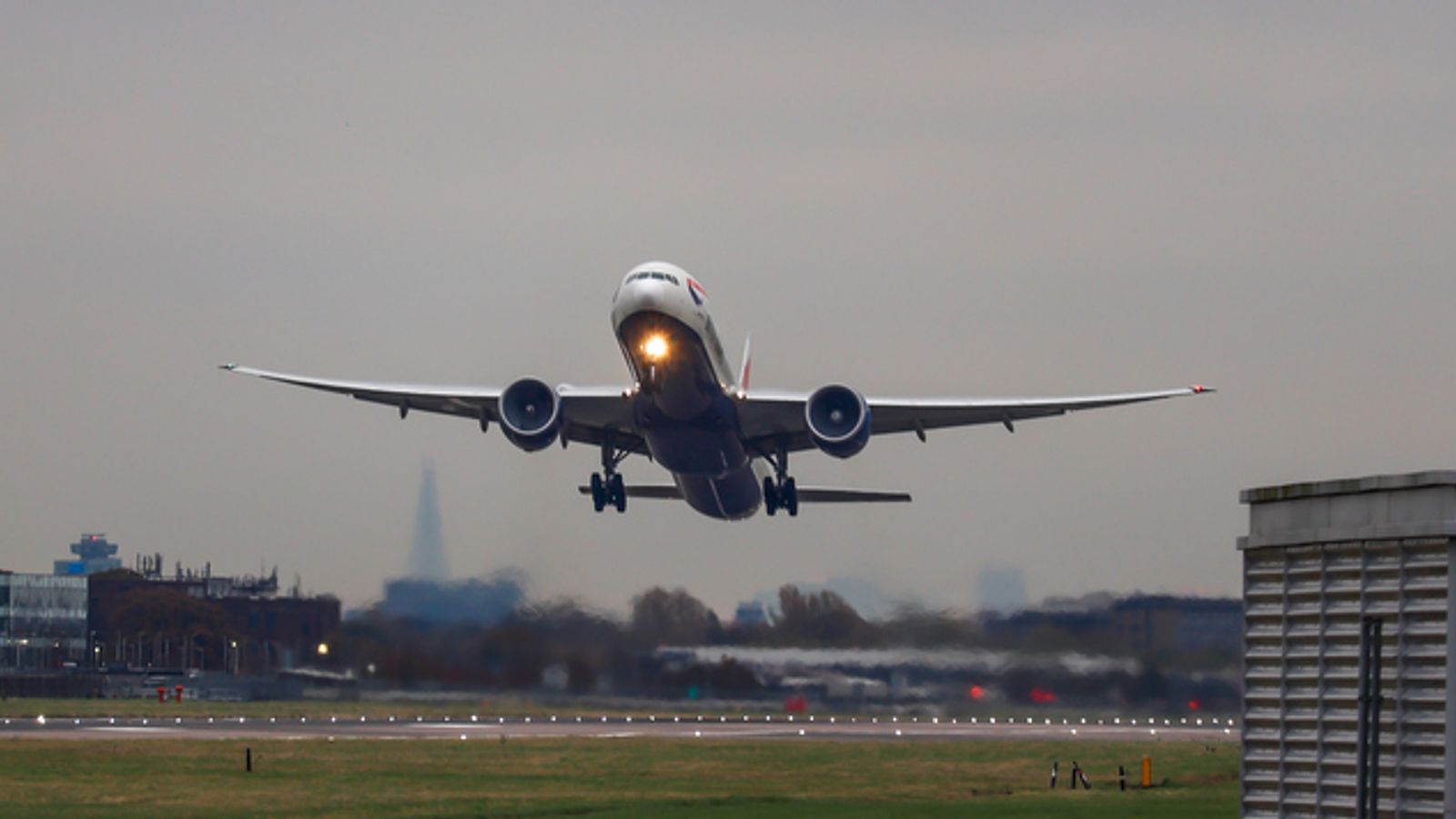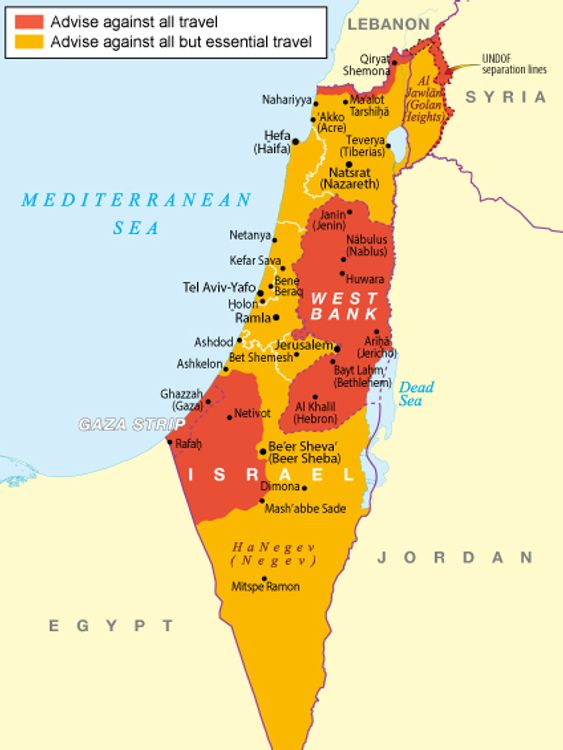Tension in the Middle East has ratcheted up again after Iran’s attack on Israel, as the world waits to see how Benjamin Netanyahu’s government will respond.
With the threat of widening conflict, people due to travel through or over the Middle East may be asking if their plans may be impacted.
On Saturday, flight data showed dozens of journeys that would have travelled over the Middle East turned back after Iran fired more than 300 drones and missiles into Israel.
Here is what airlines are saying and the latest safety advice to travellers.
EasyJet scraps Tel Aviv flights
EasyJet has suspended all flights to Tel Aviv over safety concerns.
The budget airline told Sky News it has grounded its flights until 27 October at the earliest “as a result of the continued evolving situation” in the region.
Wizz Air customers could see schedule changes
Wizz Air cancelled flights to Tel Aviv on Sunday 14 and Monday 15 April before resuming its schedule.
But it said customers could experience schedule changes as it closely monitors the situation.
British Airways operating as normal
British Airways – which operates four daily return flights per week between Heathrow and Tel Aviv – said its flights were continuing to operate as planned, but it too was monitoring the situation.
Is it safe to travel to Turkey?
Turkey is a popular holiday destination for people from the UK with the Turkish Ministry of Culture and Tourism saying that last year 3.16 million Britons made the journey there, according to Travel Weekly.
Yet, it borders a number of countries that the Foreign Office advises against travel to.
The vast majority of the country is considered generally safe for tourists, with some exceptions.
The Foreign Office advises against all travel within 10km of the border with Syria , and all but essential travel to the Sirnak and Hakkari provinces.
Is it safe to travel to Israel?
Some parts of Israel are considered “red zones” by the Foreign Office, with the government advising against all travel there.
For the rest of the country – including East Jerusalem and Tel Aviv – the advice is to travel only if it is essential.
Tourist Israel says around 220,000 Britons usually go to the country every year and the Foreign Office is advising against travel close to the border with Gaza, within 5km of the border with Lebanon and within 500m of the border with Syria.
You can see the full updated list of “red zones” on the Foreign Office advice pages.
Occupied Palestinian territories
The Foreign Office advises against all travel to Gaza and the West Bank.
Don’t travel to Iran, Iraq, Yemen, Lebanon or Syria – Foreign Office
The Foreign Office advises against all travel to Iran, Syria, Lebanon and Yemen.
It advises against all travel to Iraq except to the Kurdistan Region of Iraq (KRI), where it advises against all but “essential travel”.
Can I safely go on holiday in Egypt?
The main tourist areas in Egypt are generally considered safe, including the capital Cairo, cities along the Nile and Red Sea resorts.
Over 1.5 million British Nationals visit Egypt every year, according to analysts Gitnux, and the areas the Foreign Office warns not to travel to include the Governorate of North Sinai, where the Rafah crossing to Gaza is located, and within 20km of the border with Libya.
Read more:
Are we heading for World War Three? Experts give their verdicts
What are Iran’s military capabilities – and where could it strike?
Check advice on other Middle East states before you travel
Following Iran’s attack on Israel, the Foreign Office issued a warning relating to several countries in the surrounding area, telling travellers to check for the latest information.
Included in this are popular destinations like Dubai (visited by more than a million Britons last year according to Travel Weekly) and Marrakech.
“On 13 April 2024 Iran carried out military action against Israel. Monitor this travel advice and other media as the situation is changing fast,” the FCDO said in a statement.
The countries covered by the warning include Qatar, the United Arab Emirates, Morocco, Tunisia, Saudi Arabia, Algeria, Bahrain, Kuwait, Libya, Jordan and Oman.
Anywhere else of concern?
Cyprus is near the region and has a large UK airbase but, as yet, there is no change in travel advice to the popular country.





